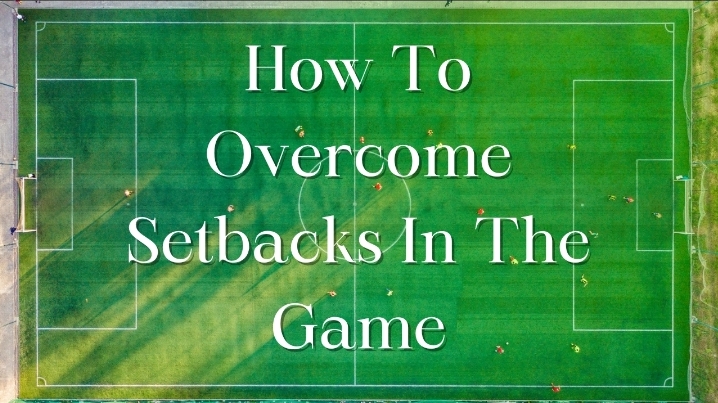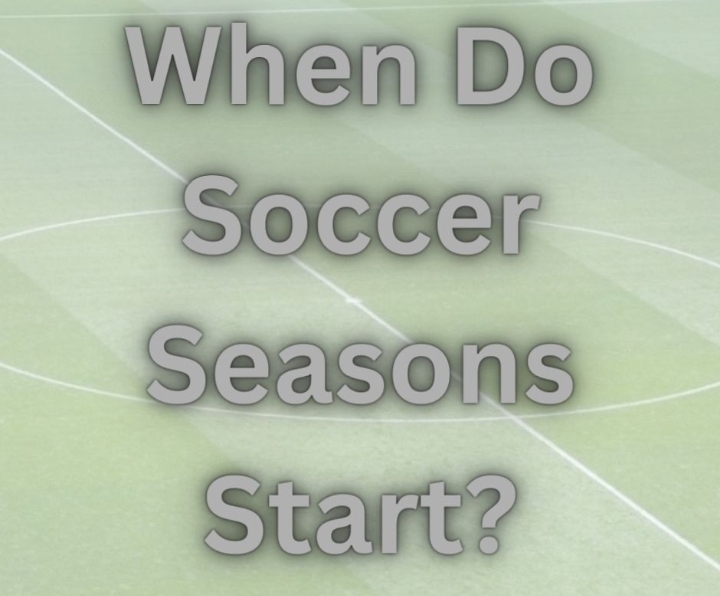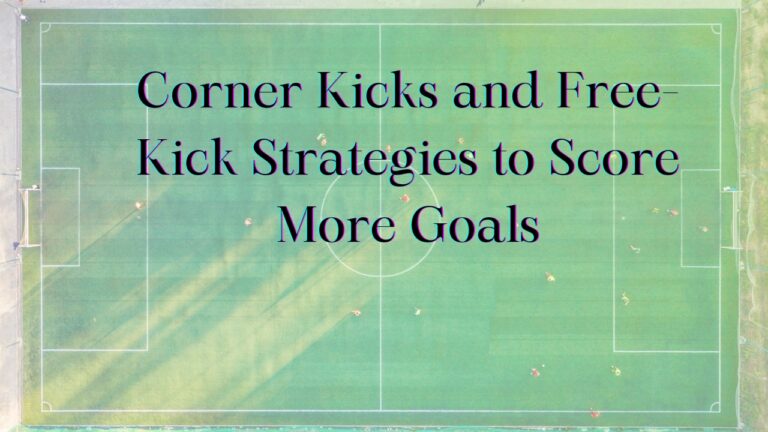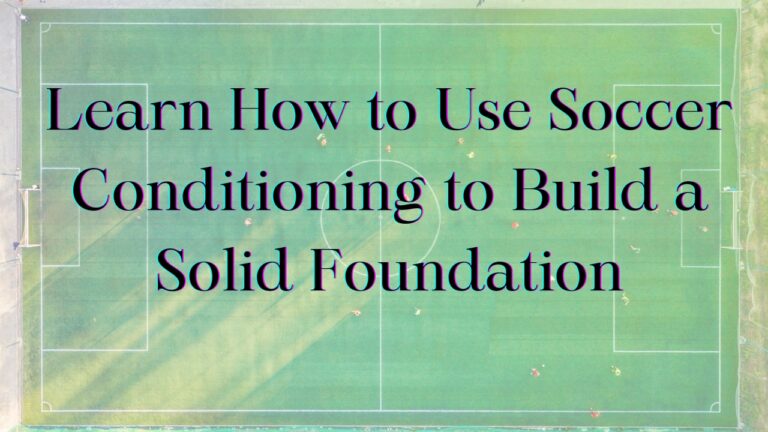Playing soccer competitively inevitably involves dealing with high-pressure situations. The roar of the crowd in a close game. A must-score penalty kick. The last few minutes of a tied elimination match. How players handle these pressure-packed moments often determines the outcome of the game.
Learning to perform under pressure is a skill that can be developed like any other. With the right mental strategies and preparation, players can transform high-tension situations from a liability into an asset.
This article will explore 7 keys to staying cool under pressure in soccer matches. Mastering these techniques will give you the confidence and mental edge to shine when it matters most. Pressure is not something to fear, but an opportunity to test your capabilities. Read on to unlock your potential in crunch time.
1. Visualize Success
The first key is to visualize yourself succeeding under pressure before you step on the field. Studies show that mental imagery and visualization training improves performance in high-stress situations. By picturing yourself scoring the winning goal or making the game-saving stopover and over, you build the confidence that you can execute when it counts.
Vividly imagine the sights, sounds, emotions, and physical sensations you will experience. See yourself staying composed, tuning out distractions, and coming through under tight pressure. This imagery primes your mind and body to replicate what you pictured during the game. Use visualization regularly in practice and the days leading up to a big match to ingrain the mental blueprint for clutch performances.
2. Establish Routines
Having set pre-performance routines and rituals is another key to handling pressure on the soccer field. Whether it’s listening to a certain playlist on the bus ride to the game, or the order you put on your uniform and tie your laces, establishing consistent rhythms helps calm nerves and focus your mental state.
On game day, follow the same sequence for meals, warmups, and pre-game preparation. Minimize any variables that could become distractions. When pressure strikes during the match, lean on your routines to ground yourself in the moment.
Routines act as cues to notify your body and mind to lock in. Having a rehearsed pre-shot routine is especially invaluable when stepping up for clutch free kicks or penalties. By sticking to your process, you give yourself the best chance to execute the skill successfully amidst the pressure.
3. Focus on Controllable
A major key to handling pressure is learning to focus your attention on the things within your control and ignore external factors that can distract you or sap your energy.
During crunch time, tune out the crowd noise, opponent’s attempts at intimidation, playing conditions, or anything else not essential to your performance. Narrow your focus to controllable factors like your effort, attitude, preparation, and execution of the next play.
Rather than wasting mental energy worrying about making mistakes or things that are out of your hands, focus on the things you can control at the moment. Staying fully engaged in your tasks and routines keeps you fixed on the surrounding pressures.
Learning this skill takes practice, but the payoff is developing resilience no matter what the game throws at you. You dictate the terms of the battle.
4. Stay Present
Another key factor in handling pressure is staying present and focused in the moment, rather than dwelling on the past or thinking about the future.
During a high-stakes game, it’s easy to drive over mistakes you may have made earlier or get ahead of yourself thinking about the consequences of winning or losing. But getting hooked on what-ifs takes you out of the present moment.
Instead, keep bringing your focus back to the here and now – the next play, the current possession, your role in this moment. Shut out distractions about past errors or future outcomes and zero in on the task at hand.
Operating fully in the present gives you the best chance of executing on top of your game. Staying present also keeps your mind from going down negative thought spirals, which are performance killers. Keep your mind anchored on the next action point.
5. Deep Breathing
One of the most effective ways to counter anxiety and physiological arousal in pressure situations is through deep breathing. Taking slow, deep breaths activates your parasympathetic nervous system, lowering your heart rate, calming your mind, and centering your focus.
When you feel pressure building during a close match, take a step back to draw some deep, full breaths. Breathe in slowly and deeply from your diaphragm, visualizing filling your torso up like a balloon. Hold for a few counts, then slowly exhale. Repeat this breathing cycle several times.
You can practice breathing exercises during training to make them second nature. Simple routines like inhaling on five counts, holding for two, and exhaling for seven counts can work wonders to steady your mind and body amidst the chaos.
Establishing this breathing ritual gives you a go-to method to calm yourself quickly when tensions are highest. Having the physical release valve lessens the mental burden.
6. Positive Self-Talk
The way you talk to yourself during competition also greatly impacts your ability to handle pressure situations in soccer. When stakes are high, it’s easy for your inner critic to start piping up with doubts and worries that can prevent your mental game.
That’s why actively taking control of your self-talk is key. When you feel the first small falls of negativity or self-criticism, stop them in their tracks. Consciously replace the negative messages with positive affirmations about your preparation, capabilities, and confidence.
Remind yourself that you’ve practiced for these moments and have the skills to succeed under pressure. Affirm your ability to tune out distractions and focus on the task at hand.
Visualize previous times when you’ve come through in the clutch to reinforce your self-belief. Using this positive self-talk pushes out the inner critic and provides an emotional boost right when you need it most.
7. Simulate Game Pressure
The final key is to practice handling pressure situations in training to continually develop and strengthen your mental skills. Don’t wait until game time to try staying composed under fire.
Look for ways to raise the stakes during drills to simulate clutch moments. Practice penalty kicks with a teammate yelling and waving their arms as a distraction. Up the intensity in shooting drills by keeping score and punishing misses.
Vary the speed and style of scrimmages to force quick decision-making and mental flexibility. Request your coach or teammates to design pressure scenarios that test your focus. The more exposure you get, the more normal it becomes.
By actively seeking opportunities to get comfortable with being uncomfortable, pressure starts to lose its power over you. You build the resilience to see it as a challenge to embrace rather than a threat to avoid. Seek out ways to expand your capabilities and develop the unshakeable confidence that pressure cannot rattle.
Conclusion
Handling high-pressure situations in soccer requires tapping into the right mental strategies like visualization, routines, focus, breathing exercises, and positive self-talk. But the keys covered in this article are skills just like your footwork and conditioning, requiring regular practice and commitment.
Make mental preparation part of your daily training regimen. Use games and competitive scenarios as opportunities to test your pressure capabilities, building experience you can draw on when the spotlight is brightest.
The greats shine under pressure. With the right mindset and practice, you can handle anything the game throws your way and potentially even start relishing the big moments. Bring the heat!
Related Post : Developing Resilience in Soccer: 7 Ways to Overcome Setbacks and Achieve Success
Author







